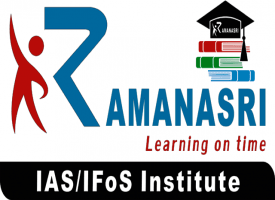English Literature
ENGLISH Literature
The syllabus consists of two papers, designed to test a first-hand and critical reading of texts prescribed from the following periods in English Literature : Paper 1 : 1600-1900 and Paper 2 : 1900–1990. There will be two compulsory questions in each paper : (a) A short-notes question related to the topics for general study, and (b) A critical analysis of UNSEEN passages both in prose and verse.
PAPER I
(Answers must be written in English)
Texts for detailed study are listed below.
Candidates will also be required to show adequate knowledge of the following topics and movements :
The Renaissance; Elizabethan and Jacobean Drama; Metaphysical Poetry; The Epic and the Mock-epic; Neo-classicism; Satire; The Romantic Movement; The Rise of the Novel; The Victorian Age.
Section A
1. William Shakespeare : King Lear and The Tempest.
2. John Donne. The following poems : –Canonization; –Death be not proud; –The Good Morrow; –On his Mistress going to bed; –The Relic;
3. John Milton : Paradise Lost, I, II, IV, IX.
4. Alexander Pope. The Rape of the Lock.
5. William Wordsworth. The following poems : – Ode on Intimations of Immortality. – Tintern Abbey. – Three years she grew. – She dwelt among untrodden ways. – Michael. – Resolution and Independence. – The World is too much with us. – Milton, thou shouldst be living at this hour. – Upon Westminster Bridge.
6. Alfred Tennyson : In Memoriam.
7. Henrik Ibsen : A Doll’s House
Section B
1. Jonathan Swift, Gulliver’s Travels.
2. Jane Austen. Pride and Prejudice.
3. Henry Fielding. Tom Jones.
4. Charles Dickens. Hard Times.
5. George Eliot. The Mill on the Floss.
6. Thomas Hardy. Tess of the d’Urbervilles.
7. Mark Twain. The Adventures of Huckleberry Finn.
PAPER II
(Answers must be written in English)
Texts for detailed study are listed below.
Candidates will also be required to show adequate knowledge of the following topics and movements : Modernism; Poets of the Thirties; The stream-of-consciousness Novel; Absurd Drama; Colonialism and Post-Colonialism; Indian Writing in English; Marxist, Psychoanalytical and Feminist approaches to literature; Post- Modernism.
Section A
1. William Butler Yeats. The following poems : – Easter 1916. – The Second Coming. – A Prayer for my daughter. – Sailing to Byzantium. – The Tower. – Among School Children. – Leda and the Swan. – Meru. – Lapis Lazuli. – The Second Coming. – Byzantium.
2. T.S. Eliot. The following poems : – The Love Song of J. Alfred Prufrock. – Journey of the Magi. – Burnt Norton.
3. W.H. Auden. The following poems : – Partition – Musee des Beaux Arts – In Memory of W.B. Yeats – Lay your sleeping head, my love – The Unknown Citizen – Consider – Mundus Et Infans – The Shield of Achilles – September 1, 1939 – Petition
4. John Osborne : Look Back in Anger.
5. Samuel Beckett. Waiting for Godot.
6. Philip Larkin. The following poems : – Next – Please – Deceptions – Afternoons – Days – Mr. Bleaney
7. A.K. Ramanujan. The following poems : – Looking for a Cousin on a Swing – A River – Of Mothers, among other Things – Love Poem for a Wife 1 – Small-Scale Reflections on a Great House – Obituary (All these poems are available in the anthology Ten Twentieth Century Indian Poets, edited by R. Parthasarthy, published by Oxford University Press, New Delhi).
Section B
1. Joseph Conrad. Lord Jim.
2. James Joyce. Portrait of the Artist as a Young Man.
3. D.H. Lawrence. Sons and Lovers.
4. E.M. Forster. A Passage to India.
5. Virginia Woolf. Mrs. Dalloway.
6. Raja Rao. Kanthapura.
7. V.S. Naipaul. A House for Mr. Biswas.
